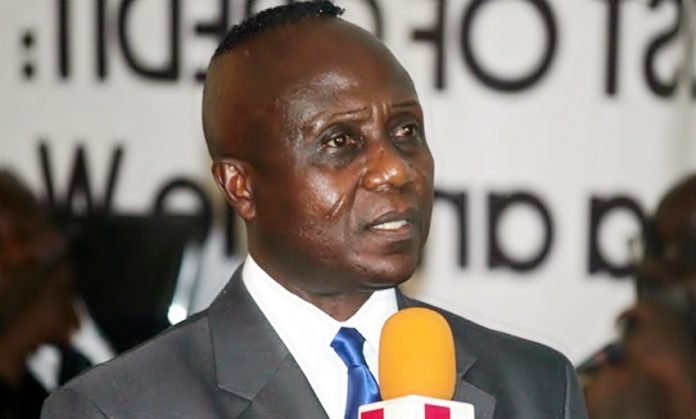The Institute of Economic Affairs (IEA) is pushing for the establishment of a Currency Board (CB) to limit the Central Bank lending to the government, a move it believes will stabilise the cedi and prevent instability in the economy in times of shocks.
According to the institute, since the CB system has limited inflation, the currency does not depreciate and balance of payments crises are rare.
“You see, a Currency Board (CB) is a rigid monetary management system that is hedged in strict rules, with little room for discretion. The CB does not lend to government and it covers its currency fully by foreign exchange”.
“The CB system has limited inflation, the currency does not depreciate and balance of payments crises are rare. This is close to the system in our Francophone neighbours, who restrict their Central Bank lending to governments and provide adequate cover for their currency, the CFA”, it emphasised.
Furthermore, the IEA said the Francophone countries system guarantees them low inflation and a stable currency, but “you have Ghana that has chosen an independent Central Bank to conduct discretionary monetary policy’.
It also blamed the Bank of Ghana for some of the economic woes, saying, “The Central Bank provides significant lending to government and covers the cedi with limited foreign exchange (40% in the Act). No doubt we face perennial price and currency instability!”
“It is for this reason that some of us have argued that if we continue to abuse policy discretion and pay a high price for it in terms of macroeconomic instability, then we better hedge our policies by rules; tie our economic managers hands, so that we can enjoy rules-driven macroeconomic stability!”, it added.
Finally, the IEA said despite Ghana having rules such as the Public Financial Management Act, the Bank of Ghana Act and the Fiscal Responsibility Act, the rules have not work because of lack of political way.
“Let me say that it is not that we have had no rules at all in fiscal and monetary management. In fact, I can mention a couple of them, such as the Public Financial Management Act, the Bank of Ghana Act, the Fiscal Responsibility Act and the relevant provisions in the 1992 Constitution, which represent attempts to introduce rules in our fiscal and monetary management system”.
“However, there are serious questions regarding not only their enforcement but their effectiveness as well. And that is the reason we feel strongly about the need to give constitutional backing to some of these rules”, it concluded.
Latest Stories
-
GPL 2024/25: Samartex eye end to losing streak against Nations FC
9 minutes -
CHAN 2024Q: Ghana’s Black Galaxies kicked out after Nigeria defeat
3 hours -
CHAN 2025: Ghana misses out after defeat to Nigeria
3 hours -
Speaker Bagbin honoured with citation for exceptional leadership
3 hours -
Photos: They came, they bonded and had fun at Joy FM’s Party in the Park
4 hours -
No shipper using a port in Ghana should pay for delays – GSA
4 hours -
Bongo Naba appeals to Ya Na, Yagbonwura, others to intervene in Bawku crisis
4 hours -
I fell in love with Ghana during 2010 World Cup – Jeremie Frimpong
4 hours -
Appoint ‘brutal’ OPK as Whip – Carlos Ahenkorah urges NPP leadership
6 hours -
Ablakwa questions alleged GH₵60m transfer to presidency for ‘special operations’
7 hours -
Dame Judi reveals apple tribute to Maggie Smith
7 hours -
NDC rejects rerun in outstanding polling station in Dome Kwabenya
7 hours -
EC has the power to re-collate results – Ayikoi Otoo
7 hours -
Putin apologises for plane crash, without saying Russia at fault
7 hours -
Footage shows NY officers beating prisoner before death
7 hours

